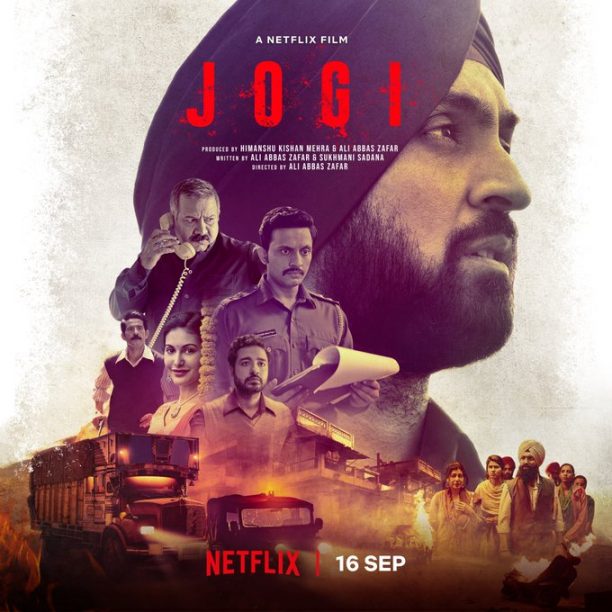 Jogi
Jogi
Starring Diljit Dosanjh, Mohammad Zeeshan Ayyub
Director Ali Abbas Zafar
Ali Abbas Zafar’s Jogi is a relevant and important piece of work recalling one of the most horrific episodes of law-sanctioned carnage in the history of mankind.
The year is 1984, and the dramatic brutal and hardhitting screenplay is set in Delhi in the days following the assassination of Mrs Indira Gandhi on October 31 when allegedly, the administration was shut down. Police and marauders alike were given a free rein to loot and burn Sikhs.
Jogi captures the initial shock and bewilderment of the Sikh community with disturbing dexterity. There is a traumatic sequence in the early hours of the prepared pogrom when Diljit Dosanjh in the titular role, boards a Delhi bus with his father and is glared down and then thrashed by co-passengers for reasons that become apparent to Jogi and his ilk only later.
The early scenes are ominous and the buildup to the carnage is admirably authentic. Kumud Mishra as the counsellor Tejpal Arora who declares 1,000 rupees for every Sikh corpse (and 5,000 if it’s a VIP, like Diljit) is chilling in his nonchalance, as only Mishra can be.
While Diljit’s heroic determination to save all his loved ones makes him an instant messiah, the real hero of the anarchic carnage is the Hindu cop played by Mohammed Zeeshan Ayyub who risks his life, family, career to drive Jogi and his family and neighbours out of Delhi into the safety of neighbouring Punjab.
The heart-in-the-mouth journey is adroitly adumbrated with some seriously suspenseful moments thrown in to get the audiences’ attention. Soon, it all begins to look woefully manufactured and unconvincing. By the time we arrive at the flashback where we get to know why a friend-turned-foe cop(Hiten Tejwani, credible in his menacing animosity not so convincing when he’s suddenly reformed from a massacrer to a lifesaver) the raw and authentic narrative becomes an unrecognizably romantic entity with characters ready to lay down their lives to save the hounded Sikhs from the bloodthirsty counsellor.
The sentimental pumped-up climax is designed to be a lump-in-the-throat experience. The gathering tension comes to a head in the second-half bringing to the drama a sense of louring urgency . Jogi is our miniature version of Steven Spielberg’s Schindler’s List.
Director Ali Abbas Zafar and his co-writer Sukhmani Sadana employ the tool of tokenism to drive in the point of cross-community solidarity during a time of momentous crisis: a Hindu cop, a Muslim contractor are among the angelic saviours of the Sikh community under siege.
The villain counsellor is shown playing kiddy games with his little daughter, just to let us know how even family men turn murderous when it comes to opportunism.
The performances are supremely convincing as Sikhs largely play the Sikh characters. Diljit is a natural except when he is shown cutting his “hair”( apparently a wig) in a Gurdwara. Mohammad Zeeshan Ayyub never fails to bring something extra to his character. This time he is made to walk a very thin line between credible nobility and doctored dogood-ism.
Jogi has some truly unforgettable moments of trauma and humanism. It is a story that had to be told. And must be seen.









